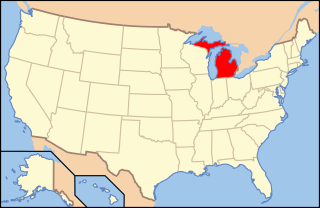This article needs additional citations for verification .(July 2010) |
| |||
|---|---|---|---|
This is a list of notable events in the history of LGBT rights that took place in the year 1980.
This article needs additional citations for verification .(July 2010) |
| |||
|---|---|---|---|
This is a list of notable events in the history of LGBT rights that took place in the year 1980.
This is a list of notable events in the history of LGBT rights that took place in the year 1981.
This is a list of notable events in the history of LGBT rights that took place in the year 1998.
This is a list of notable events in the history of LGBT rights that took place in the year 2002.
This is a list of notable events in the history of LGBT rights that took place in the year 1978.
This is a list of notable events in the history of LGBT rights that took place in the year 1993.
This is a list of notable events in the history of LGBT rights that took place in the year 1992.
This is a list of notable events in the history of LGBT rights that took place in the year 1973.
This is a list of notable events in the history of LGBT rights that took place in the year 1977.
This is a list of notable events in the history of LGBT rights that took place in the year 1972.
This is a list of notable events in the history of LGBT rights that took place in the year 1984.
This is a list of notable events in the history of LGBT rights that took place in the year 2005.
Kentucky v. Wasson, 842 S.W.2d 487, was a 1992 Kentucky Supreme Court decision striking down the state's anti sodomy laws that criminalized sexual activity between two people of the same-sex, holding that this was a violation of both the equal protection of the laws and the right to privacy. The Kentucky case helped pave the way for many other states and eventually the United States Supreme Court to issue similar rulings.
This is a list of notable events in the history of LGBT rights that took place in the year 2009.

Melvin Boozer was a university professor and activist for African American, LGBT and HIV/AIDS issues. He was active in both the Democratic Party and Socialist Party USA.

Lesbian, gay, bisexual, and transgender (LGBT) persons in the U.S. state of Michigan may face some legal challenges not faced by non-LGBT residents. Same-sex sexual activity is legal in Michigan, as is same-sex marriage. Discrimination on the basis of both sexual orientation and gender identity is illegal since July 2022, was re-affirmed by the Michigan Supreme Court - under and by a 1976 statewide law, that explicitly bans discrimination "on the basis of sex". The Michigan Civil Rights Commission have also ensured that members of the LGBT community are not discriminated against and are protected in the eyes of the law since 2018.
This is a list of events in 2011 that affected LGBT rights.

Lesbian, gay, bisexual, and transgender (LGBT) persons in the U.S. commonwealth of Kentucky have most of the same rights as non-LGBT persons have, but still face some legal challenges not experienced by other people. Same-sex sexual activity is legal in Kentucky. Same-sex couples and families headed by same-sex couples are not eligible for all of the protections available to opposite-sex married couples. On February 12, 2014, a federal judge ruled that the state must recognize same-sex marriages from other jurisdictions, but the ruling was put on hold pending review by the Sixth Circuit. Same sex-marriage is now legal in the state under the U.S. Supreme Court ruling in Obergefell v. Hodges. The decision, which struck down Kentucky's statutory and constitutional bans on same-sex marriages, and all other same sex marriage bans elsewhere in the country, was handed down on June 26, 2015.

Lesbian, gay, bisexual, and transgender (LGBT) persons in the U.S. state of Alaska may face some legal challenges not experienced by non-LGBT Alaskans. Same-sex sexual activity has been legal since 1980, and same-sex couples have been able to marry since October 2014. The state offers few legal protections against discrimination on the basis of sexual orientation and gender identity, leaving LGBT people vulnerable to discrimination in housing and public accommodations; however, the U.S. Supreme Court's ruling in Bostock v. Clayton County established that employment discrimination against LGBT people is illegal under federal law. In addition, four Alaskan cities, Anchorage, Juneau, Sitka and Ketchikan, representing about 46% of the state population, have passed discrimination protections for housing and public accommodations.
This article gives a broad overview of lesbian, gay, bisexual and transgender (LGBT) history in Canada. LGBT activity was considered a crime from the colonial period in Canada until 1969, when Bill C-150 was passed into law. However, there is still discrimination despite anti-discrimination law. For a more detailed listing of individual incidents in Canadian LGBT history, see also Timeline of LGBT history in Canada.

The Fairness Campaign is a Louisville, Kentucky-based lobbying and advocacy organization, focusing primarily on preventing discrimination on the basis of sexual orientation and gender identity. The Fairness Campaign is recognized by the IRS as a 501(c)(4) organization. The organization is a member of the Equality Federation.